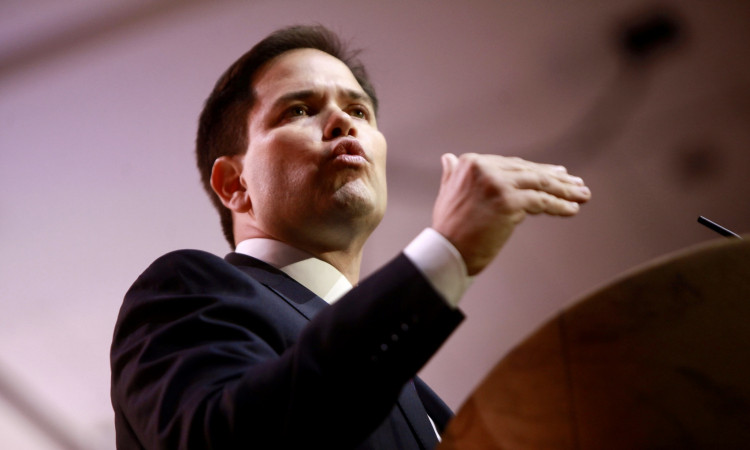Secretary of State Marco Rubio said Friday the United States may abandon its efforts to negotiate a peace deal between Russia and Ukraine within days, citing lack of meaningful progress despite a new framework emerging from talks this week in Paris.
"We are now reaching a point where we need to decide whether this is even possible or not," Rubio told reporters before departing France. "Because if it's not, then I think we're just going to move on. It's not our war. We have other priorities to focus on."
The warning came after U.S., Ukrainian, and European officials met in Paris in what Rubio described as constructive but inconclusive discussions. A follow-up meeting is scheduled next week in London. The Trump administration is said to be growing increasingly impatient, and Rubio confirmed a final decision may be made "in a matter of days."
President Donald Trump's envoys have held multiple rounds of backchannel talks with both Russian and Ukrainian officials in recent months, including at least three visits by special envoy Steve Witkoff to meet with Russian President Vladimir Putin. "I won't prejudge them, but we do feel optimistic that we can hopefully bring this war, this very brutal war, to a close," Vice President JD Vance said Friday in Rome.
The Biden-era military and financial aid to Kyiv has largely been halted. Trump's team has made resuming support contingent on Kyiv's willingness to accept terms that include potential territorial concessions. Russia currently controls approximately 20% of Ukraine, including parts of Donetsk, Luhansk, Kherson, Zaporizhzhia, and Crimea.
"Russia is striving toward resolving this conflict, securing its own interests, and is open to dialogue," Kremlin spokesman Dmitry Peskov said, while declining to detail Moscow's position. He confirmed no talks between Trump and Putin are currently scheduled.
Rubio's comments came alongside confirmation from Ukraine's Economy Minister Yuliia Svyrydenko that Washington and Kyiv had signed a memorandum of intent for a long-delayed rare earth minerals deal. "We have a minerals deal," Trump said Thursday. U.S. Treasury Secretary Scott Bessent signed the document on behalf of the administration, which has sought access to Ukraine's mineral reserves as part of its broader policy shift away from military support.
The minerals framework had previously stalled after a contentious Oval Office meeting in February involving Trump, Vance, and Ukrainian President Volodymyr Zelenskyy. Talks resumed in March after Zelenskyy signaled openness to a ceasefire framework proposed by the U.S. in Jeddah.
Despite that, Russian airstrikes continued this week, with Ukrainian officials reporting new civilian casualties. One person was killed and 98 injured in a cluster munition strike on Kharkiv, according to Mayor Ihor Terekhov. In Sumy, a Russian drone attack on a bakery killed a customer and wounded an employee, days after 34 people died in a missile strike during Palm Sunday services.
Rubio acknowledged that both Ukraine and Russia had accepted, in principle, a 30-day ceasefire in March, but said the temporary halt had quickly unraveled due to "conflicting statements" and mutual accusations of violations.
The Trump administration remains divided. Rubio and National Security Adviser Mike Waltz have argued that Russia must be confronted militarily. Others, including Witkoff and Vance, have pushed for a diplomatic path, citing the economic risks of renewed conflict and doubts about achieving full nuclear disarmament from Tehran-style inspections.
Trump himself has shown ambivalence. In recent comments, he blamed Zelenskyy for initiating the war, saying, "You don't start a war with someone 20 times your size and then hope people give you some missiles." He has declined to label Putin a dictator and has instead urged Kyiv to accept a negotiated settlement.
European officials, concerned about Washington's warming tone toward Moscow, participated in the Paris talks with cautious optimism. "The U.K. and France and Germany can help us move the ball on this," Rubio said, adding that European buy-in would be key to any future security guarantees for Ukraine.






